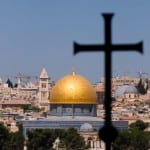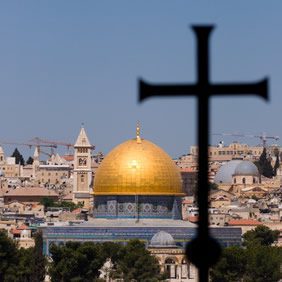 If someone asked you for the difference, how would you answer?
If someone asked you for the difference, how would you answer?
Here is part of the answer from the website Aleteia.
“What difference is there between the fasting that Muslims and Christians do? Do they bear the same fruit?
The Koranic verse referring to fasting as a duty in Islam reminds us that God imposed fasting on the faithful even before Islam: “Fasting has been prescribed for you as it was prescribed for those before you.” This is why fasting is considered one of the defining symbols of the union of the People of the Book – Jews, Christians, and Muslims – in their faith in one God. According to Islamic doctrine, there is only one religion, but there are different laws and this explains the difference between how Christians and Muslims fast, keeping in mind that it is the same principle. Indeed, although it is different, fasting in the two communities requires them to refrain from responding to bodily passions and desires for a specified period in order to tame the soul and encourage them to devote themselves fully to the worship of God and … to remember that there are people in need who cannot get enough to eat. It is a reminder that brotherhood requires not only that we share that sense of deprivation with them, but that we also share the goods and graces that God has given us.
This is the same principle, although the practice differs between Christians and Muslims. The decisions of the Second Vatican Council clearly refer to the importance of the pillar of fasting in Islam accompanied by other pillars, namely prayer, alms, the worship of God, and belief in the final judgment. These different points relating to the faith laid the basis for the relations of friendship and respect that Vatican II wanted to establish with Islam.”
The interview also addresses the question Is there a difference between Ramadan for the Shiites and Ramadan for the Sunnis? How is this month lived by each of these two communities?
Aleteia offers this exclusive interview on Ramadan with Muhammad al-Samak, SecretaryGeneral of the Committee for Dialogue between Christians and Muslims, and a member of the Permanent Islamic Committee and the World Conference of Religions for Peace. Muhammad al-Samak, a native of Beirut, Lebanon, was one of the invitees to the special Synod of Bishops on the Middle East at the Vatican in 2010.
For more about Aleteia
Tags: Aleteia, Lent, Ramadan

